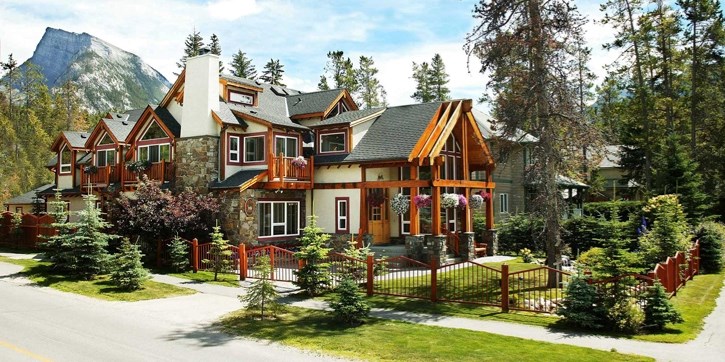BANFF – The Town of Banff is forming a working group to get feedback on clarifying and potentially tightening regulations for bed and breakfast homes and inns.
The group’s focus will centre on the B&B quota, enforcement options, discussion on property taxes and fees, options for B&Bs in heritage properties, ways to strengthen the accessory nature of B&Bs and the effect any change in regulations would have on existing B&Bs.
Dave Michaels, development planner for the Town of Banff, said that over the past few years there have been a number of questions raised by current B&B owners, prospective applicants and residents about various aspects of the current regulations.
“In order to solicit input from a variety of stakeholders, a working group will be formed in order to gain a range of ideas and to provide recommendations to council regarding potential Land Use Bylaw amendments,” he said, noting B&B requirements were last reviewed in 2012.
The group, likely to be convened by an independent facilitator, will be made up of 10 members, including three B&B home operators or applicants, a B&B Inn owner, a hotel operator, and five residents. It will meet four times over the summer.
Aside from commercial growth management and the imbalance between commercial and residential development in the late 1990s, how to better regulate the proliferation of B&Bs was one of the single biggest issues.
In 1998, Banff capped the number of B&B homes and inns, setting an overall quota of 65 and a limit for each land use district where B&Bs are allowed. There are currently 46 approved B&Bs, with three pending applications.
Michaels said Banff has been very successful at making sure that the only commercial accommodation available in residential properties is through approved B&B homes and inns.
“Through ongoing monitoring, administration noted that a few operators of approved bed and breakfast homes were operating outside of their approved conditions,” he said.
“This has resulted in enforcement action on some operators and the refusal of renewal by the Municipal Planning Commission.”
B&Bs offer an alternative accommodation option and experience for visitors to Banff, but on the other hand, Michaels said the undersupply of affordable homes to rent and buy is a challenge in providing a comfortable living community.
“The conversion of residential bedrooms into guest rooms for bed and breakfasts can have a negative impact on housing due to the loss of those rooms for residents,” he said.
“Additionally, the potential for higher revenue from bed and breakfast homes may be a disincentive for developers to add additional dwellings to single detached homes, or to rent the property/rooms to eligible residents.”
Anyone interested in applying to be on the B&B working group can go to Banff.ca/bedandbreakfast to complete an application form. Deadline is Wednesday (June 12) by 4:30 p.m.




